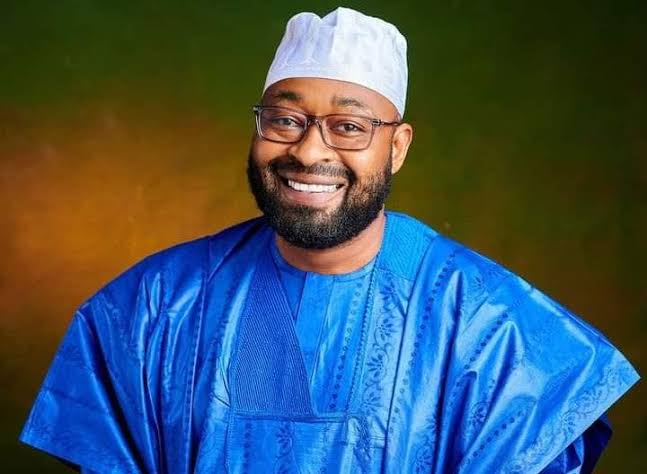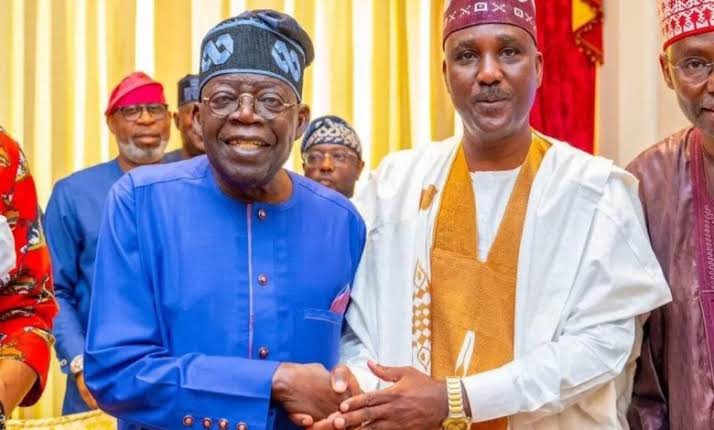…laments rising cases in zone, seeks religious, traditional leaders’ intervention
The Speaker of the House of Representatives Rt. Hon. Abbas Tajudeen, Ph.D., GCON, has launched a sensitisation campaign against the rising cases of drug abuse and domestic violence in the North-West geopolitical zone, saying it demands urgent actions.
He stated that the task of eradicating drug abuse, illicit drug flow, and domestic violence should not be left to the government alone, noting that it is the responsibility of all stakeholders.
Speaker Abbas, therefore, called on traditional and religious leaders as well as educators to join the campaign against drug abuse and domestic violence, urging them to sensitize those under their influence on the impact on society.
The Speaker made the call at the flag-off of Sensitisation Campaign Against Drug Abuse and Domestic Violence in the North-West Zone, themed: ‘Stop Drug Abuse and Domestic Violence in Our Communities,’ held in Kaduna on Monday. It was organized in collaboration with the National Orientation Agency (NOA).
Speaker Abbas, who convened the sensitisation campaign, announced that his office would work closely with NOA and the National Drug Law Enforcement Agency (NDLEA), as well as other key stakeholders, “engaging directly with communities, traditional rulers, religious leaders, educators, and non-governmental organisations across all states and local governments in the North-West.”
He said: “I have chosen to focus on these pressing issues because they strike at the very heart of our collective security and prosperity. Sensitisation, in this context, is far more than an awareness campaign; it is a decisive call to action. By educating our citizens about the perils of drug abuse and domestic violence, we aim to foster preventative measures, extend critical support services, and empower our communities to safeguard their future.”
The Speaker noted that the flag-off comes at “a critical juncture for our region, where recent data from various Nigerian government agencies have underscored the urgency of these issues.”
He cited the example of a report by the NDLEA, which said there was a 25 per cent rise in drug abuse in the North-West over the past three years.
The NDLEA also reported that in Kaduna State alone, statistics indicate a 28 per cent increase in drug seizures in 2023 compared to the previous year, while similar troubling trends have been observed in Katsina, Kano, Sokoto, Zamfara, Jigawa, and Kebbi.
“In these states, law enforcement agencies are contending with a surge in the availability and consumption of illicit substances, which threatens public safety and undermines socioeconomic stability,” the Speaker said.
Speaker Abbas said it is equally concerning that the scourge of domestic violence has continued to ravage families and communities across our nation, particularly in the North-West.
He also cited data from the Nigeria Demographic and Health Survey and reports from the Ministry of Women Affairs and Social Development which reveal that nearly 35 per cent of women nationwide have experienced some form of domestic violence and “the situation is even more alarming” in the North-West.
The Speaker said recent figures from Kano suggest that up to 40 per cent of women have encountered domestic abuse, while Kaduna, Katsina, and Sokoto have recorded significant increases in reported cases over the past year.
Speaker Abbas said: “These figures are a stark reminder that domestic violence not only violates human rights but also inflicts lasting physical, emotional, and psychological trauma that weakens the social fabric of our communities.
“In addressing these twin challenges, I must acknowledge the commendable and targeted interventions by the Government of the Federal Republic of Nigeria under the leadership of President Bola Ahmed Tinubu, GCFR.
“On the national stage, the government has significantly bolstered the capacity of the NDLEA by increasing funding, providing modern tools and enhanced training, and launching initiatives that expand rehabilitation centres and community-based outreach programmes. These measures have disrupted drug trafficking networks and provided essential support to those affected by substance abuse.”
On the issue of domestic violence, Speaker Abbas noted that the government has introduced robust legal reforms and reinforced policies through the Ministry of Women Affairs and Social Development. These efforts, he said, include establishing safe houses, counselling services, and comprehensive public awareness campaigns that aim to protect victims and promote cultural change toward zero tolerance of abuse.
While stating that it is incumbent upon the government to enact and enforce policies that address the root causes of these challenges, he stressed that community leaders must foster a culture that unequivocally rejects drug abuse and domestic violence.
The Speaker said: “I call upon all the governors of the North-West states and their local government chairmen to wholeheartedly support this initiative and work in unison with the agencies charged with its execution. The future of our region depends on the decisive actions we take today. Let us unite our efforts to protect our youth from the destructive allure of drugs and uphold the rights and dignity of every citizen.”
The Chairman of NDLEA, Brigadier-General Mohammed Buba Marwa (rtd.), CON, who delivered the keynote address titled, ‘The Impact of Drug Addiction on National Development,’ noted that drug abuse is one of the major challenges facing the country.
Marwa noted that there is a strong link between drug abuse and criminality.
While pointing out that though the NDLEA is the first responder in checking the flow of illicit drugs in Nigeria, Marwa stated that it is not a responsibility of the agency alone, as security agencies, public, religious and traditional institutions have roles to play.
In his welcome address, the Director-General of NOA, Malam Lanre Issa-Onilu, said the campaign was a call for action by all stakeholders to make society safe for all.
While calling for sensitisation of people at the grassroots, especially the young ones, the NOA DG urged traditional and religious leaders to use their influence in society to campaign against drug abuse.
Issa-Onilu stated that the event was about the future of the new generation, warning that Nigeria risks losing a generation to drug abuse and addiction.
Governor Uba Sani of Kaduna State, who was represented by the Permanent Secretary of the Ministry of Women Affairs, Dr. Aishatu Abubakar-Sadiq, stated that attention should also be paid to over-the-counter drugs, noting that apart from hard drugs, medicines such as cough syrups and analgesics are also abused.
The governor also reeled out the interventions by his administration while commending the local governments in Kaduna for their collaborative efforts.





